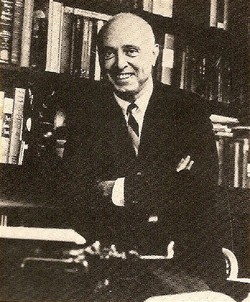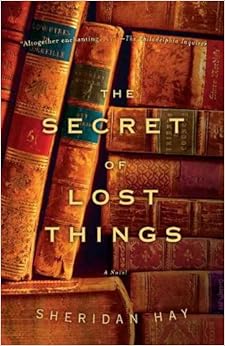Sharyn McCrumb, If Ever I Return, Pretty Peggy-O
Literary fashion is right about as often as it is wrong, but probably not more often. And the "fashionability" or otherwise of a book is not better -- or worse -- a guide than the length of its title or the colour of its jacket.
Sebastian Faulks, Faulks on Fiction
All writers are, like the rest of us, a product of their times. Had William Shakespeare been born 400 years later, in 1964 instead of 1564, he might conceivably still be regarded as the greatest writer in English ever, but chances are he would not be writing sonnets or plays about English kings. He would instead be writing about themes of interest to 21st century readers and in a 21st century style. Even so, some people, writers included, seem like they might have fit better in some other time.
He began writing seriously after his discharge from the Army following World War II, and he labored on novels, science fiction short stories and plays for more than two decades without much success. He was getting published, but earned little income and attracted few readers. And then the times caught up with him. The publication of Slaughterhouse-Five in 1969 coincided with the anti-war movement, the hippie generation and the Age of Aquarius. Without trying to, Vonnegut became the voice of that period of American history. His offbeat style, which previously had turned off publishers and readers, suddenly became relevant.
Within a few years, however, the hippies cut their hair and, in most cases, became middle-aged people with middle class values, not unlike their parents. "But novels deeply rooted in concerns of an era -- especially political issues -- don't usually wear well," Shields writes, and Vonnegut's novels began to read like a literary fad that had passed.
This brings me to the comment by Sebastian Faulks regarding literary fashions. He happens to be writing about D.H. Lawrence and Lady Chatterley's Lover, but his words apply to Vonnegut and other writers, as well. Fashion obviously has a lot to do with a book's sales, but it should have nothing to do with a book's literary value. If a book is any good, it is good whether it is in fashion or not.
In a Barnes & Noble store two days ago I noticed a whole shelf of Kurt Vonnegut books, not just his major novels like Slaughterhouse-Five and Mother Night, but some of his lesser known works, as well. So obviously his books remain in print. But are they still being read? Are they being taught in high schools and colleges? Vonnegut died in 2007. How will he be remembered 50 or 100 years from now? Was he a writer only for his times or for the ages?









